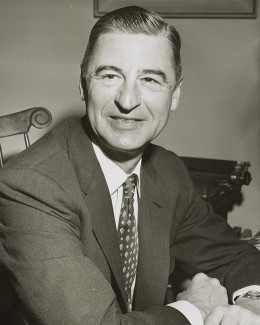
Johns Hopkins UniversityEst. 1876
America’s First Research University
Happy Birthday, Dr. Seuss!

“You can find magic wherever you look. Sit back and relax, all you need is a book.” – Dr. Seuss
Theodore Seuss Geisel was born on March 2, 1904. After working as an advertising illustrator, political cartoonist, and humorist, his first children’s book And to Think That I Saw It on Mulberry Street was
published in 1937. He subsequently wrote more than 60 books, which have been translated into more than 20 languages, many of which have also been turned into animated classics and feature films.

Dr. Suess’s whimsical illustrations, poetic meter, and accessible vocabulary made him one of the most beloved children’s authors of all time. Today, the legacy of Dr. Seuss – who also published under the names “Theo LeSieg” and “Rosetta Stone”- is celebrated every year on March 2nd. “Read Across America Day” and “World Book Day” are commemorated by adults and children in schools and libraries across the globe to celebrate Seuss and his influence on reading and literacy.
There is much to be said about the legacy of Dr. Seuss, and academic scholars continue to analyze, review and critique his work across many disciplines.
In celebration of Dr. Seuss’ 116th birthday, here is a selection of scholarly papers from JHU Press journals that take a closer look at his impact on children’s literature, environmentalism, political satire, critical theory, and many more perspectives.
The Unsung Dr. Seuss: Theo. Le Sieg
John Gough
Children’s Literature Association Quarterly
Vol. 11, No. 4 Winter 1986-1987
The Origin of Stories: Horton Hears a Who
Brian Boyd
Philosophy and Literature
Volume 25, Number 2, October 2001
Imagination, Rejection, and Rescue: Recurrent Themes in Dr. Seuss
Tim Wolf
Children's Literature
Volume 23, 1995
Cartoonists Against the Holocaust by Rafael Medoff and Craig Yoe (review)
Tahneer Oksman
American Jewish History
Volume 101, Number 2, April 2017
Was the Cat in the Hat Black?: Exploring Dr. Seuss’s Racial Imagination
Philip Nel
Children's Literature
Volume 42, 2014
He Murdered Dick and Jane
Glenn C. Altschuler and Patrick M. Burns
Reviews in American History
Volume 40, Number 1, March 2012
The Kind of Tale Everybody Thneeds? Ecocriticism, Class, and the Filmic Lorax
Arielle C. McKee
Children's Literature Association Quarterly
Volume 40, Number 1, Spring 2015
Playing to the Audience: A Critical Look at Dr. Seuss
Gary D. Schmidt
Children's Literature Association Quarterly
Volume 16, Number 1, Spring 1991


